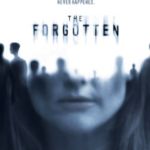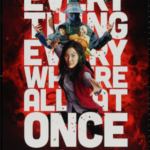Animal Farm (1954, 1999)
The two movie retellings of George Orwell’s 1945 novel Animal Farm – the animated version from 1954 and the live-action-and-animatronics one from 1999 – each follow the author’s allegory about Soviet Communism, the 1999 film a little more so. Neither film is for children; these are stark tales that, like the novel, well depict the brutality, terror, lies, violations of conscience, and disregard for life that murderous Communist Party regimes always inflict upon their enslaved subjects. The movies do so, of course, via Orwell’s device of a story of farm animals who revolt against their human masters.

The Englishman Orwell – Eric Arthur Blair, 1903-1950 – considered himself a “democratic socialist.” Traveling to Spain to fight for the Left in the Civil War there, in 1937 he joined the Workers’ Party of Marxist Unification (POUM), only to run into the factional disputes that plagued the leftist side. That turned into outright persecution when the Soviet-backed Reds accused the POUM of being “fascist.” He and his wife Eileen, who had joined him, escaped back to England, and the Reds convicted him in absentia of “Trotskyism.” His Animal Farm reflected much of what all this had taught him.
The CIA, it is now evident, financed the 1954 film. That does not invalidate the movie, because it sticks close to Orwell’s narrative. The film, by the studio of the British animation husband-wife team of John Halas and Joy Batchelor, features beautiful scenes but also grim ones. As in the novel, Old Major, venerable boar of Manor Farm (Russia), gathers the farm animals and tells them that humans are the cause of their misery and they must rebel, win their freedom and live by their founding principles afterwards. In the film’s lexicon, Old Major stands for Karl Marx.
https://youtu.be/Rx5iLRpw8jg
The animals do revolt, and they surprise themselves by successfully driving off their cruel owner, Mr. Jones. The animals prosper as they run the now-Animal Farm (the USSR) and make decisions by popular vote, but the pig Napoleon (Joseph Stalin) begins scheming. Pig Snowball (Leon Trotsky) lays out The Seven Commandments of Animalism (Communism), such as, “Whatever goes upon two legs is an enemy” and “Whatever goes upon four legs, or has wings, is a friend.” The last rule is, “All animals are equal.” After siccing his dogs (the Soviet OGPU and NKVD secret police, forerunners of the KGB), on Snowball and eliminating him, Napoleon takes over and establishes rule by committee of pigs (the Politburo) – who start hogging (pun intended) food and secretly breaking the commandments, even as the rest of the animals, especially draft horse Boxer (New Soviet Man), idealistically slave away for their farm. The animals repel violent attacks by neighboring farmers (World War I-era Allied interventionists).
With the aid of his propaganda pig Squealer (Molotov), Napoleon starts rewriting the commandments in his favor and persuading the animals they had always read that way. He also starts trading with a human, Mr. Whymper, to the animals’ disadvantage. He has his dogs kill the farms’ hens for balking at giving up their eggs to Whymper. When Boxer collapses from overwork, Napoleon sends him to the glue factory instead of retirement. Squealer tells the animals Boxer died in a hospital and his last words were in praise of Napoleon. The animals see through that blatant lie.
After years of hardship and misery, the animals finally see that the pigs are just like cruel humans. The final commandment of Animalism, “All animals are equal,” now reads, “All animals are equal, but some are more equal than others.” So – SPOILER ALERT: the animals strike for their freedom by rising up and killing, off-screen, Napoleon and his henchpigs.

The 1999 movie is well done and worthwhile. It follows the basic storyline and expertly spotlights and skewers the lies and crimes of the pigs (Communists). One addition: Jessie, a border collie, narrates the film as a flashback. Marring the story are scenes not in the novel: slingshot-wielding boys attack sheep and a pig, and Jones commits adultery (off-screen) with the wife of a nasty neighbor.
After accidentally shooting Old Major, Jones butchers him, with close-ups of the meat. Napoleon takes Jessie’s newborn puppies from her to “educate” them. Squealer produces crude black-and-white propaganda films that glorify Napoleon. One shows executed animals suspended on the hangman’s rope; the pig regime had altered the Animalism commandment, “No animal shall kill any other animal,” to, “No animal shall kill any other animal without cause.” Jessie, the border collie, realizes she can no longer tell Napoleon and Whymper apart; so she gets other animals to go into hiding with her in a remote area.
https://youtu.be/Ebk71P_b5vk
SPOILER ALERT: Jessie narrates as Napoleon’s regime collapses due to winds and flooding and to “his own madness.” The dogs, Jessie’s former puppies, survive and return to her with affection. The movie ends with Jessie, with her grandpuppies, placidly watching from a sunlit field as new owners, a smiling human couple and their children, happily drive up to the tune of Fats Domino’s “Blueberry Hill.” Jessie, intuiting that all will be well, says, “We will not allow them to make the same mistakes. We will rebuild the farm, and now at last, we shall be free.”
Orwell’s novel ended with the animals still mired under tyranny. The 1954 movie’s depiction of the animals (Russia and the Captive Nations) overthrowing the dictatorship was unrealistic, to say the least, as the brutally suppressed revolts in Poland and Hungary in 1956 were to show. The 1999 film’s portrayal of the pig regime’s collapse in the winds, though, accurately reflects the sudden fall of the Soviet Evil Empire, 1989-1991, the fruit of the cooperation of President Ronald Reagan and Pope St. John Paul II throughout the 1980s. Few today recall that 1988 was the 1,000th anniversary of the coming of Christianity in 988 to what are now Ukraine, Russia, and Belarus. Surely the winds of the Holy Spirit were blowing strongly against tyranny in the climax of that millennium.
John Halas and Joy Batchelor produced and directed the 1954 film and wrote the script along with Borden Mace, Philip Stapp, and Lothar Wolff. Maurice Denham voiced all the characters! Gordon Heath narrated and Mátyás Seiber was the composer. For the 1999 film, John Stephenson directed and Alan James and Martyn Burke were the writers. Richard Harvey was the composer and Mike Brewster the cinematographer. The live (and all-star) cast included Pete Postlethwaite, Caroline Gray and Alan Stanford with voices by Julia Ormond, Patrick Stewart, Ian Holm, Julia Louis-Dreyfus, Kelsey Grammer, Paul Scofield, Peter Ustinov, Charles Dale, Louise Gold, and Jean Beith.
Postscript: Both movies, like the novel, have key omissions – like Lenin and his terror, as well as Communism’s inherent atheism, materialism, mass murder, forced relocations, the gulags and slave labor, and persecution of Christians. The Bolsheviks committed killings from the start; Trotsky favored terror and Lenin said the Reds needed “truly hard men.” Soviet Communism was unworkable and murderous to its collectivist core. Pace the Left, but Stalin did not pervert Marxism, he perfected it.
— Dan Engler















